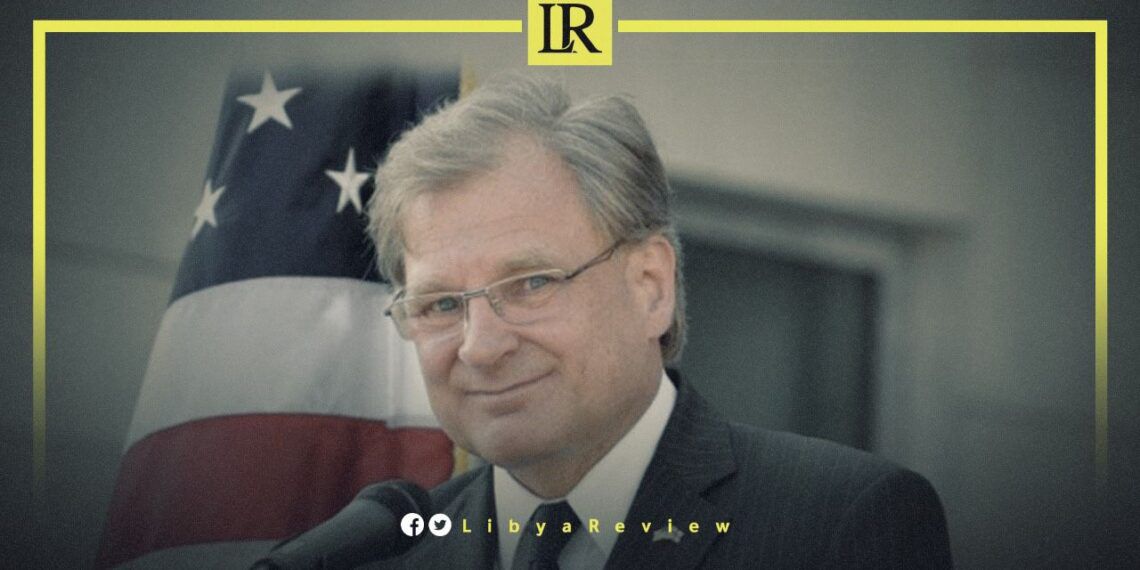On Wednesday, the US Special Envoy to Libya, Richard Norland, highlighted the shared understanding of the need to restore momentum to the United Nations-facilitated political process in Libya. This statement came as he concluded his two-day visit to Libya, during which he held multiple meetings with Libyan leaders.
Norland’s remarks were conveyed via the US Embassy to Libya’s account on X (formerly Twitter). He underscored the critical need for dialogue on transparency and accountability in the distribution of oil revenues, enhancing border security, and ensuring Libya’s sovereignty.
Libya’s Presidential Council head, Mohamed Al-Mnifi, reiterated Libya’s commitment to national sovereignty in managing financial and natural resources. He pledged to introduce new ideas to the High Financial Committee in 2024, focusing on prioritizing public expenditure.
Norland stated, “Reaching an agreement on a roadmap that leads to elections, with results accepted by all major parties, remains the key to Libya’s stability.” He reaffirmed that the United States would continue to support efforts aimed at achieving this goal.
During his visit, Norland engaged in extensive meetings with Libyan political figures. In the past 48 hours, he has met with President Mohamed Al-Mnifi, Chairman of the High Council of State Mohamed Takala, Prime Minister of the Government of National Unity Abdul Hamid Dbaiba, and Acting Head of the United Nations Support Mission in Libya (UNSMIL) Stephanie Khoury. These meetings focused on advancing the political process in Libya.
Libya has been embroiled in political turmoil since the overthrow of Muammar Gaddafi in 2011. The country remains divided between rival administrations in the east and west, supported by different militias and foreign powers. Despite numerous attempts at reconciliation, achieving lasting peace and stability has been elusive.
The United Nations has been at the forefront of mediating peace efforts in Libya.
The Libyan Political Dialogue Forum (LPDF), facilitated by UNSMIL, aims to create a unified executive authority and set the stage for national elections. However, challenges persist, including internal political divisions, the presence of foreign fighters, and disputes over oil revenue distribution.


